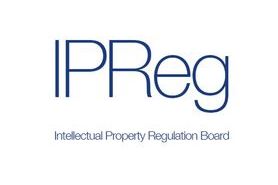Becoming a trade mark paralegal
Also known as administrators or formalities, trade mark paralegals often take on responsibility for registering and maintaining trade marks.

What is a paralegal and what role do they perform?
A paralegal provides vital support to fee earner attorneys in all areas of trade mark portfolio management. A paralegal may report to one fee earner attorney or, depending on the set up of their department, may assist and support several attorneys.
Openings exist within in-house departments as well as in private practice firms. In some private practice firms, paralegals may have client facing roles.
What types of tasks are undertaken by a paralegal?
Tasks undertaken by paralegals and responsibilities given to them may differ from firm to firm, but typically, tasks will include:
- Compiling trade mark status reports
- Reviewing trade mark watch results
- Reviewing trade mark searches
- Preparing and filing applications corresponding with the UK IPO and the EUIPO
- Issuing instructions to, and corresponding with, overseas counsel/attorneys
- Handling renewals
- Entering and monitoring critical dates and deadlines
- Client billing
What qualifications are needed and what qualifications can be pursued?
The profession is not degree entry, although a sound academic background is needed with a proven ability of supplying high attention to detail. Paralegals need to be excellent communicators – both written and verbal - and be prepared to work under pressure and to time sensitive deadlines.
Many firms encourage their paralegals to undertake the CITMA Paralegal Course which is the dedicated qualification for paralegals. CITMA run a bespoke course designed for paralegals, which provides an excellent networking opportunity as well as training/preparation for the exam. In 2025 there were over 100 candidates who sat the exam with 95 passing.
Many employers who advertise to recruit experienced paralegals are looking for CITMA qualified individuals.
To ensure consistency of training and development across firms, we have published The CITMA Paralegal Competency Framework, click here to view the framework.
What does career progression look like?
A career as a paralegal can be very rewarding and paralegals can make a significant contribution to the success of a department/business and have opportunities to work closely with clients and colleagues.
Networking with fellow paralegals also exist - CITMA runs a Paralegal Conference every year with content being specific to the role and there are also overseas conferences held designed for paralegals.
A paralegal position can also be a stepping stone to becoming a qualified trade mark attorney. The knowledge, experience and qualifications gained might lead a paralegal to follow the attorney route For those interested in this route, there is an article posted on the CITMA website. CITMA - Career paths: The route from formalities to Chartered Trade Mark Attorney
















